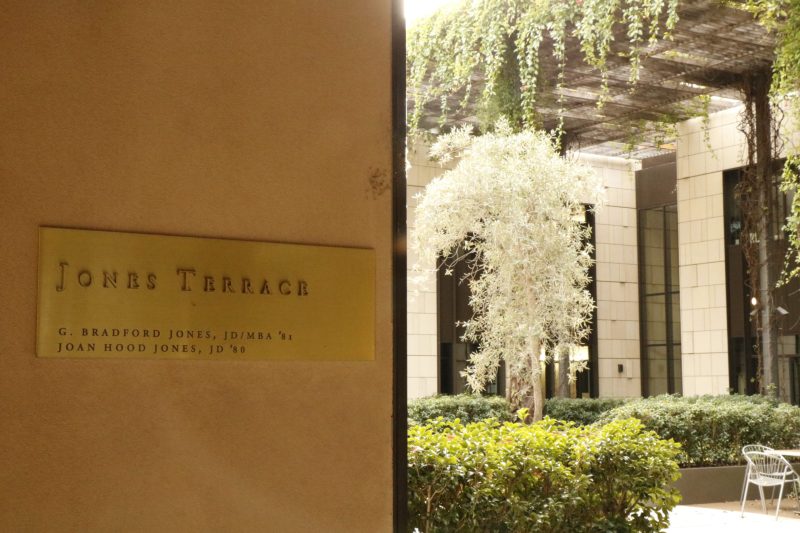Certainty about the outcome of Stanford dropout Elizabeth Holmes’s trial is muddled by the complex circumstances surrounding Holmes’s intentions and relationships, according to Stanford Law professors. The Daily sat down with two of these professors and a Loyola Law professor to break down the case.
Holmes founded Theranos, a blood diagnostic company, in 2003, and raised a $9 billion valuation for her firm. She now stands trial for conspiracy and fraud for her involvement with the company, and, if convicted, will face up to 20 years in prison.
Those looking for a quick answer as to whether Holmes will be convicted will have to wait several months, according to Stanford Law professor Robert Weisberg J.D. ’79. Weisberg, who has taught at Stanford for four decades, specializes in criminal law and white-collar crime.
“The prosecution sees this as a very straightforward case. In cases that go to trial, the prosecution wins 70 to 80% of the time,” Weisberg said. “Nevertheless, very few defendants have the resources that Holmes has, and there are special aspects of this trial; some view her very unsympathetically, some view her very sympathetically.”
Ultimately, the case is likely to come down to intent to deceive or “whether the defendant knowingly lied, or simply was proved wrong in the end about how things would work out,” according to Stanford Law professor and former federal prosecutor David Sklansky.
Prosecutors will try to prove that Holmes was lying intentionally by contrasting what she knew with what she said, according to Sklansky. The prosecution will point to the degree of control Holmes exercised over the company and contend that someone of her intellect and power must have known she was lying, he added.
Weisberg agreed that intent will be an important part of the case, adding that Holmes will have to argue that she truly did believe in Theranos. She will exaggerate her personality and personal story to frame herself as an aspiring visionary who made mistakes in pursuit of noble goals, rather than as a malicious actor and liar, according to Weisberg.
“Holmes will say that if you’re going to be an entrepreneur in Silicon Valley, you have to learn how to fail because you have to be bold and experiment,” Weisberg said.
Holmes is also claiming that Sunny Balwani — her ex-boyfriend and previous President of Theranos — was abusive and caused her to act under duress. But Loyola Law Professor Laurie Levenson ’77, who specializes in criminal law and procedure and previously prosecuted white-collar crime, said that the claim of abuse will be very difficult to prove.
“It was such a prolonged activity, and she took the initiative. When you see photographs or films of her, she doesn’t look as though she’s under duress,” Levenson said. “It’s hard enough for battered women to argue a duress defense; for someone in this situation, it would be a very difficult challenge.”
Holmes also recently gave birth to her first child. While some analysts believe that the child could benefit Holmes’s case, Levenson disagrees. “Legally, the child is irrelevant. You don’t get to commit fraud just because you have a child who is going to miss you when you go to prison,” she said. While she noted that some jurors may sympathize with Holmes as a result, she added that others will be angry and feel manipulated.
Furthermore, as Holmes is the first major female Silicon Valley CEO to stand trial, gender could affect parts of the trial, because “whenever a powerful woman is accused of a crime, gender gets wrapped up in how people think and talk about the allegations,” Sklansky said. He explained that the jury will need to ask themselves whether gender plays a role in how the witnesses perceived the events they described. According to him, there is no way to keep the issue of gender out of the case.
Despite the possibility of up to 20 years in prison, Weisberg guessed that in reality, Holmes would be sentenced to “a few years in prison at most.” While the sentencing process is meant to be based on objective criteria, the judge can still take personal factors into account, according to Weisberg. Although previous financial scandals have resulted in sentences between 10 and 20 years, these sentences were handed down to older businessmen who lacked the personal and emotional claims that Holmes has, he explained.
While the Holmes case is high-profile, Weisberg said that it is not representative of the criminal justice system at large. In contrast to the drawn-out process of Holmes’s case despite its lack of any novel legal issues, Weisberg said that ”the criminal justice system is high-volume, mass production, guilty pleas that end up with relatively poor people being convicted.”
Ultimately, Levenson views this case as a cautionary tale for Stanford students and aspiring entrepreneurs.
“Stanford students push themselves to be bold and go into new areas. But there are still rules you have to play by,” Levenson said. “Next time someone tries to cut corners or mislead people, they’ll have the lessons of the Elizabeth Holmes trial in the back of their minds. Do not trump the rules of society.”
